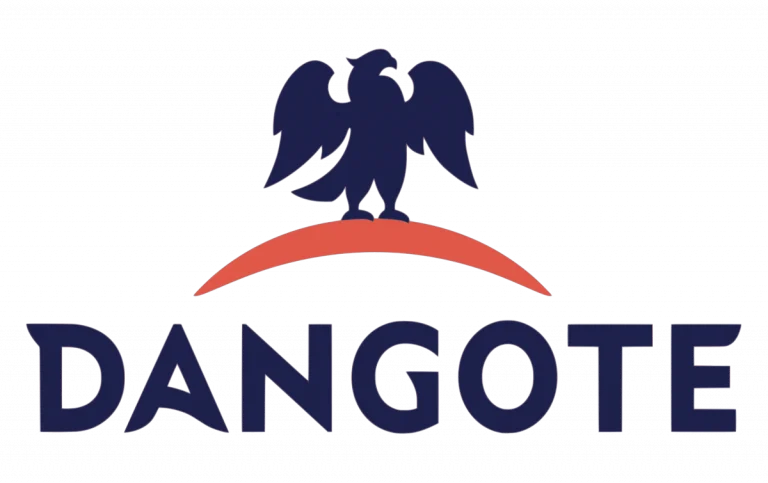Business
Why Nigeria Is Yet To Be Food Secured – Varsity Don

A University Lecturer with Agronomy Department, Faculty of Agriculture in Bayero University, Kano, BUK, Sani Miko has listed factors responsible for why Nigeria is yet to be food secured.
Miko who categorized the factors into Internal and external policy challenges undermining the nation’s food security, said they include inadequate funding for the agricultural sector, threat of climate change for sustainable agriculture, insecurity of agricultural land and investments, insufficient value addition and agro-industrial processing facilities and low agricultural export among others.
The Varsity Don stated this while delivering a paper titled, “Policy Challenges To Food Security in Nigeria” during an annual Ramadan lecture organized by the Islamic Forum of Nigeria National Headquarters in Kano.
According to him, “Indeed, there are numerous challenges that prevented the Nigerian agricultural sector from attaining its full potential. They can be categorized into Internal and external policy challenges undermining food security in the country. The chief among them are as follows:
READ ALSO:
“Inadequate funding for the agricultural sector. Funding is inadequate to drive agricultural development in Nigeria.
“Achieving agricultural transformation would require funding beyond what the current budgetary allocation would provide.
“Over the years, Agriculture receives low investment from both State and Federal Governments. Example, Federal Government made budgetary allocation of between 1.3% and 3.4% to Agriculture in annual budget from the year, 2000 to 2007.
“In the year 2017, combined expenditure of the federal and state governments showed they spent only 1 .8 percent of their total annual budget to agriculture.
“Threat of Climate Change for Sustainable agriculture. This is negatively affecting the Nigerian agricultural sector while the policy response and the needed interventions to mitigate the impact has remained largely ad-hoc.
“Another factor is insecurity of Agricultural land and investments which is currently posing greater risk to agricultural production, processing, marketing and delivery of essential services.
“The menace of Boko Haram, Banditry and communal, farmers and pastoralists conflicts have devastated livelihoods and investments of hundreds of farming and pastoral communities.
“Low level of agricultural mechanization. The availability and accessibility of macro and micro mechanization equipment such as tractors, power tillers, planters, combine harvesters and others needed for land preparation and other agricultural activities is very low in the country.
“Another factor is inadequate rural Infrastructure. The capacity of the rural communities for massive agricultural production and on-farm processing has been constrained by inadequate road networks, power supply, irrigation infrastructure, storage and processing facilities.
“Poor extension services delivery: With an average of 1:10,000 extensions to farmer ratio across the country, farmers receive limited guidance and training in technology adoption. Also, limited access to affordable credit is another factor where farmers grapple with limited access to finance and high interest rates even with the interventions by the CBN.
“Similarly, issue of ineffectual synergy which relates to ineffective policy formulation and implementation structures at intra and inter-federal Ministries, Department and Agencies (MDAs) and weak synergy between federal and states MDAs. This has led to persistent inter and intra-agency rivalry in the sector.
“However, given the interdependent nature of international economic relations, it is unlikely that a country like Nigeria would be able to achieve its food security goal using its internal dynamics alone. For any country to be able to achieve its food security goal, it would need to think and act both locally and globally.
“This would need an adjustment of its relations with international, regional, and sub-regional institutions like the FAO, the European Union (EU), and Economic Community of West African States (ECOWAS).
“It would also require seeking the understanding and support of some countries, which may be negatively affected by some agricultural, food, and fiscal policies of Nigeria.
“Thus, the ban placed on the import of some agricultural products – like Rice and Wheat, frozen chicken, and meat – in order to encourage local production, hurts the exporting countries of these food items to Nigeria.
“This can provoke retaliation against Nigeria’s export of cash crops.
“These countries need to be reassured that Nigeria’s import prohibition of food items was not aimed to rubbish their ingenuity to produce so much food for local consumption and export the surplus; while greater collaboration is also needed with FAO in order to keep technical and financial aids that regularly come from the organization flowing.
“In addition, it would be helpful for the Nigerian government to take a hard and more discerning look at the usual irritating and self-serving suggestion from the World Bank, IMF, and the developed countries against subsidies in agriculture in developing countries.
“This is because it is now evident that the suggestion is at variance with the practice in the developed countries.
“The developed countries do subsidize agricultural products. It is the support and subsidies that have enabled greater agricultural production and cheaper food without depressing the income of the farmers, but generating surpluses that the developed countries dole out as food aid to the developing countries, where the food aid sometimes serves as a disincentive to local food production.
“The Nigerian government has made food security a top priority in its economic reform agenda. It has also formulated agricultural policies and adopted some strategies it believes will make the agricultural sector of the economy more viable to ensure food security but the goal of food security seems increasingly elusive because the formulation and implementation of agricultural policies alone are not yielding the desired results and even if it is conceded that they are yielding some results, such results are incredibly marginal to be noticed by the people.
“This is so and likely to remain like that because of the lacuna in the whole agricultural development program, typified by the absence of a food policy, ineffective linkage between the local food system, international food production, and supply system; inadequate funding of science and technology, universally acknowledged as one of the pillars on which food security rests; and the inability of the government to tackle decisively the increasing level of poverty and insecurity, which reduces access of many Nigerians to food production, supply and consumption,” Miko stated.
Business
NNPCL Announces Restoration Of Escravos-Lagos Pipeline

The Nigerian National Petroleum Company Limited (NNPCL) has announced the complete restoration of the Escravos-Lagos Pipeline System (ELPS) in Warri, Delta State, following the recent explosion on the asset.
The chief corporate communications officer (CCCO) of the nation’s oil company, Andy Odeh, in a statement, said that the pipeline is fully operational, reiterating the company’s resilience and commitment to energy security.
“NNPC Limited is pleased to announce the successful restoration of the Escravos-Lagos Pipeline System (ELPS) in Warri, Delta State.
READ ALSO:Fuel Price Cut: NNPCL GCEO Ojulari Reveals Biggest Beneficiaries
“Following the unexpected explosion on December 10, 2025, we immediately activated our emergency response, deployed coordinated containment measures, and worked tirelessly with multidisciplinary teams to ensure the damaged section was repaired, pressure-tested, and safely recommissioned.
“Today, the pipeline is fully operational, reaffirming our resilience and commitment to energy security. This achievement was made possible through the unwavering support of our host communities, the guidance of regulators, the vigilance of security agencies, and the dedication of our partners and staff.
“Together, we turned a challenging moment into a success story, restoring operations in record time while upholding the highest standards of safety and environmental stewardship.
“As we move forward, NNPC Limited remains steadfast in its pledge to protect our environment, safeguard our communities, and maintain the integrity and reliability of our assets. Thank you for your trust as we continue to power progress for Nigeria and beyond,” the statement read.
Business
Dangote Unveils 10-day Credit Facility For Petrol Station Owners

The Dangote Group has announced a 10-day credit facility backed by a bank guarantee for petrol station owners and dealers, alongside free direct delivery and other incentives, as part of a new supply arrangement.
The company disclosed this in a statement posted on its official X handle on Tuesday, inviting petrol station operators across the country to register to benefit from the offer.
According to the statement, participating dealers will enjoy “a 10-day credit facility backed by a bank guarantee,” with a minimum order requirement of 5,000 litres.
“Our free direct delivery service will commence soon,” the group said, adding that the offer is open to “all petrol station owners and dealers.”
READ ALSO:Dangote Sugar Announces South New CEO
The Dangote Group further called on operators to register their stations to access the supply arrangement.
“Register your petrol stations today to benefit from our competitive gantry price,” the statement read.
The company also disclosed that petrol supplied under the arrangement will be sold at a gantry price of ₦699 per litre.
For enquiries, the group provided the following contact numbers: 0802-347-0470, 0809-324-7070, 0809-324-7071 and 0203.
READ ALSO:Dangote Refinery Dispute: PENGASSAN Suspends Strike After FG Intervention
The announcement follows a recent petrol price adjustment by the Dangote Petroleum Refinery.
The PUNCH earlier reported that the refinery reduced its ex-depot petrol price from ₦828 to ₦699 per litre, representing a ₦129 cut or a 15.58 per cent reduction.
An official of the refinery, who spoke to PUNCH Online on condition of anonymity, confirmed the adjustment, saying, “The refinery has reduced petrol gantry price to ₦699 per litre.”
The new price reportedly took effect on December 11, 2025, marking the 20th petrol price adjustment announced by the refinery this year.
Business
JUST IN: Otedola Sells Shares In Geregu Power For N1trn

Billionaire businessman, Femi Otedola, has sold his majority stake in Geregu Power Plc for N1.088 trillion in a deal financed by a consortium of banks led by Zenith Bank Plc.
The Nigerian Exchange, NGX, made this announcement on Monday.
Otedola’s Amperion Power Distribution Company Ltd reportedly held nearly 80 percent of the power generating company.
READ ALSO:N200b Agric Credit Dispute: Appeal Court Slams NAIC, Upholds First Bank Victory
With this new development, Otedola, Chairman of First Holdco Ltd, parent company of First Bank of Nigeria Plc, will reportedly now concentrate on expanding his interest in the Nigerian banking sector, although he still retains some shares in Geregu.
Otedola is said to currently own 17.01 percent of First Bank — its single largest shareholder since the bank was established in 1894.

 Politics5 days ago
Politics5 days agoJUST IN: INEC Excludes PDP From Ekiti Governorship Election

 Metro4 days ago
Metro4 days agoJUST IN: Court Orders Remand Of Ex-AGF Malami, Son, Wife In Kuje Prison

 News5 days ago
News5 days agoNigerian Army Finally Reveals Details Of US Military-led Airstrikes In Sokoto

 Politics4 days ago
Politics4 days agoDino Melaye Reacts To Malami’s Arraignment For Money Laundering

 News5 days ago
News5 days agoOPINION: Trump Must Finish What He Started

 News4 days ago
News4 days agoOPINION: Don Pedro And Beautiful Benin

 Business5 days ago
Business5 days agoJUST IN: Otedola Sells Shares In Geregu Power For N1trn

 News5 days ago
News5 days agoOPINION: Gov Makinde, His Sons And His ‘Friends’

 News5 days ago
News5 days agoOutrage, Confusion Trail Rumours Of Mohbad’s Wife Giving Birth Two Years After His Death

 Sports5 days ago
Sports5 days agoAFCON 2025: Four Teams Qualify For Round Of 16


















